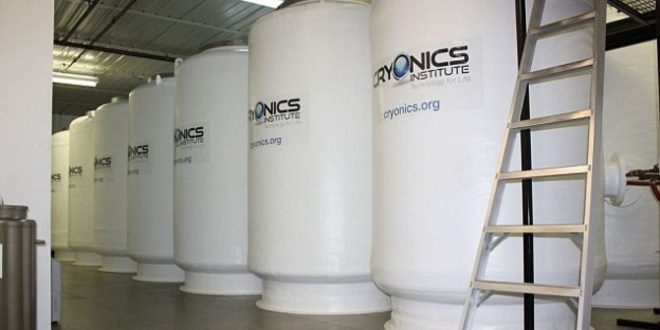A 14-year-old girl, known only as JS, is suffering from terminal cancer and has won a case to be cryogenically preserved in the hope of a future cure.
The High Court judge ruled that the girl’s mother could decide what happened to the body. When she died in October her body was transported from London to the US where it was cryogenically frozen by a commercial company.
The court heard that her dying wish was to be preserved so that she might be revived ‘even in hundreds of years’ time’. In a letter the teenager explained:
“I’m only 14 years old and I don’t want to die, but I know I am going to. I think being cryo-preserved gives me a chance to be cured and woken up, even in hundreds of years’ time.
“I don’t want to be buried underground. I want to live and live longer and I think that in the future they might find a cure for my cancer and wake me up. I want to have this chance.”
What is cryopreservation?
It is the technique of preserving human tissues by cooling to a very low temperature (from -80 °C using solid carbon dioxide or -196 °C using liquid nitrogen). Someone whose body has been treated in this way is known to be in ‘cryonic suspension’.
The deep-freezing technique developed in the 1960s, has been used by people who have died of incurable diseases to be revived in the hope of a future cure.
The Case
The young girl was diagnosed with cancer last year. By August 2016, doctors said the cancer was terminal and that her treatment would end.
JS then started researching cryonic preservation, which involves the freezing of a dead body in the hope it can be successfully brought back to life in the future.
But being a minor, JS could not make a legal will and a decision to have herself frozen would have to be granted by both of her parents. Except her parents are divorced and her father estranged.
In her letter to the court JS had asked that her mother, who supported her desire to be cryogenically frozen, be the only person to decide how her body should be disposed of.
On Oct. 6. Jackson ordered JS’ mother would have the final say. Her father, who was reluctant to agree to the procedure eventually changed his mind.
Commenting on the ruling, Justice Jackson said:
“It is no surprise that this application is the only one of its kind to have come before the courts in this country, and probably anywhere else. It is an example of the new questions that science poses to the law, perhaps most of all to family law.”
With the help of her maternal grandparents, JS’ family was able to raise the £37,000 (43,000 euro) needed for the “most basic” preservation treatment offered by the Cryonics Institute in the United States.
On Oct. 17 JS died in hospital.
The body of JS was then flown to the United States where it will be stored in a vat of liquid nitrogen by the Cryonics Institute located in Michigan.
Controversy
The process of cryopreservation attracts much controversy. The scientists working in cryonics institutes defend their work as ‘giving hope’ for a future revival.
In its FAQ section, Cryonics UK answers the question about how someone can be sure the technique works saying:
“You can’t. You have a choice, though: you can try it, and maybe live and maybe die. Or you can not try it, and definitely die.
There is so far no evidence that an entire body can be successfully frozen and then thawed. Some doctors argue that certain organs would not survive the process.
Agencies/Canadajournal
 Canada Journal – News of the World Articles and videos to bring you the biggest Canadian news stories from across the country every day
Canada Journal – News of the World Articles and videos to bring you the biggest Canadian news stories from across the country every day



